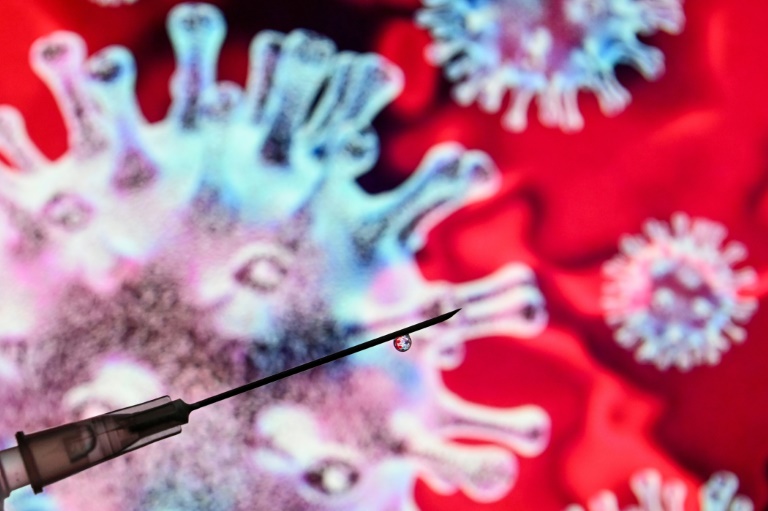The European Commission on Monday authorised a vaccine from US company Novavax as its fifth official jab for use across the European Union, hours after the EU medicines watchdog gave approval.
Officials hope the vaccine, made from a more conventional technology than the others, will help persuade those hesitant about vaccination to come forward.
“At a time where the Omicron variant is rapidly spreading, and where we need to step up vaccination and the administration of boosters, I am particularly pleased with today’s authorisation of the Novavax vaccine,” said EU chief Ursula von der Leyen.
The Novavax vaccine now sits alongside the EU’s other authorised Covid jabs, from BioNTech/Pfizer, Moderna, AstraZeneca and Johnson & Johnson.
Called Nuvaxovid, the Novavax offering is a vaccine based on so-called protein subunit technology which is tried and tested, having been used for decades to vaccinate people against diseases including hepatitis B and whooping cough.
Unlike mRNA vaccines produced by BioNTech/Pfizer and Moderna, Nuvaxovid does not need to be stored in ultra-low temperatures, giving it a logistical advantage in difficult-to-access regions.
– ‘Promising results’ –
Earlier Monday, the European Medicines Agency (EMA) gave the green light for the jab to be given conditional marketing authorisation.
Careful study of clinical data from studies in Britain and in the United States and Mexico had showed it to be “robust”, meeting EU criteria for “efficacy, safety and quality”, it said.
Von der Leyen, in her statement, said she hoped the newest addition to the EU’s range of vaccines would “offer a strong encouragement to everyone who has not yet been vaccinated or boosted, that now is the time to do so”.
EU health commissioner Stella Kyriakides said that Nuvaxovid “shows promising results against Covid-19”. Vaccinations and boosters were “today more important than ever if we are to stem the wave of infections and counter the emergence and spread of new variants”, she said.
Novavax, a US biotech firm based in the state of Maryland, has already won emergency-use approval for its vaccine in Indonesia and the Philippines, and Japan has agreed to buy 150 million doses.
It would also make an application to the US regulator, the Food and Drug Administration, said the company, whose production and vaccine-vetting process has been plagued by delays.
Novavax said it has also filed for approval in Britain, India, Australia, New Zealand, Canada, and with the World Health Organization (WHO).
– ‘Limited data’ on Omicron –
The company’s chief executive, Stanley Erck, said the Commission’s authorisation would deliver the vaccine to the EU “during a critical time when we believe having choice among vaccines will lead to increased immunisation”.
The vaccine “may help address major obstacles to global vaccination, including global distribution challenges and vaccine hesitancy”, Erck added.
The EMA noted that while the two main clinical trials of Nuvaxovid showed between 89-90 percent efficacy in reducing the number of symptomatic Covid cases, that was against the Alpha and Beta variants of Covid that are no longer prevalent.
“There is currently limited data on the efficacy of Nuvaxovid against other variants of concern, including Omicron,” it said.
– Donated doses –
On the face of it, the European Union does not need another vaccine.
It has 69 percent of its population fully vaccinated, and has secured advance purchases of up to 4.2 billion doses from seven vaccine manufacturers.
Largely it is relying on BioNTech/Pfizer, which accounts for more than half the vaccines it has bought or has options for.
But the EU is also the world’s biggest exporter of vaccines, when including doses sent from factories in the bloc under contract, others given to the WHO-led Covax facility, and other donations.
Even if Nuvaxovid sees limited use in the EU, it could bolster supplies European Union member states have promised to send to other parts of the globe.
The EU signed its pre-purchase agreement with Novavax in August, ahead of approval and authorisation. The deal would see the US company delivering up to 100 million doses starting early next year, with options for an additional 100 million through into 2023.
Member states have already locked in orders for 27 million doses.









